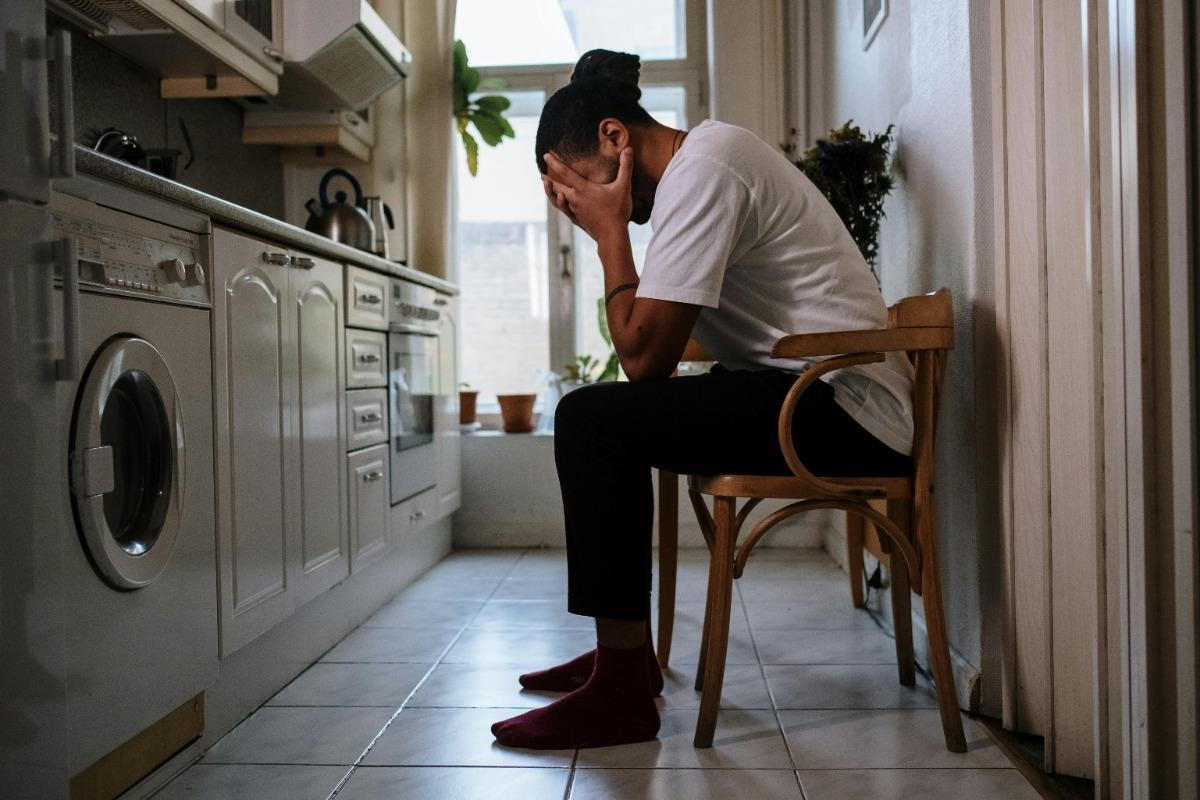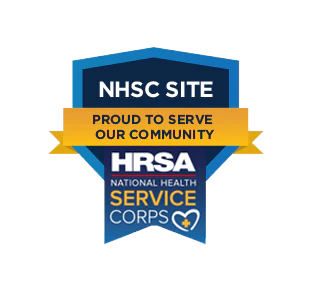Understanding Anxiety and How to Cope

- posted: Sep. 11, 2024
Anxiety is one of the most common mental health conditions in the world. According to the Anxiety and Depression Association of America (ADAA), approximately 40 million adults in the United States alone experience some form of anxiety disorder every year . While everyone experiences anxiety from time to time, persistent or excessive worry can interfere with daily functioning and lead to an anxiety disorder.
What Causes Anxiety?
Anxiety disorders can develop due to a combination of genetic, environmental, and psychological factors. Studies have shown that individuals with a family history of anxiety are more likely to experience anxiety themselves. Additionally, environmental factors such as trauma, chronic stress, or significant life changes can trigger the onset of anxiety disorders .
Biologically, anxiety is linked to the brain’s fear circuitry. The amygdala, a region of the brain responsible for processing emotions, plays a central role in how we experience fear and anxiety. Overactivity in this region has been linked to anxiety disorders, which is why individuals with anxiety may experience heightened sensitivity to stressors .
Common Symptoms of Anxiety
Anxiety manifests in different ways, but common symptoms include:
Excessive worrying about everyday events
Restlessness or feeling "on edge"
Fatigue or difficulty sleeping
Muscle tension
Irritability
Difficulty concentrating
These symptoms can range from mild to severe, and if left untreated, anxiety can significantly impair your quality of life.
Proven Strategies for Managing Anxiety
Cognitive Behavioral Therapy (CBT): CBT is one of the most effective treatments for anxiety disorders. It works by helping individuals identify and challenge distorted thought patterns that contribute to anxiety. According to research from the National Institute of Mental Health (NIMH), CBT has a high success rate in treating anxiety, with many patients experiencing significant reductions in symptoms within 12 to 16 sessions .
One CBT technique, called cognitive restructuring, helps individuals reframe negative thoughts. For example, if you think, "I’ll never be able to handle this situation," CBT encourages you to challenge that thought with evidence-based reasoning, such as, "I’ve handled similar situations in the past, and I can manage this too."Breathing Exercises and Relaxation Techniques: Breathing exercises can help calm the body’s physiological response to anxiety. When anxiety strikes, our breathing becomes shallow and rapid, triggering the body’s fight-or-flight response. Deep breathing exercises, such as diaphragmatic breathing, help activate the parasympathetic nervous system, which promotes relaxation.
A study published in Frontiers in Psychology found that individuals who practiced slow, deep breathing for just a few minutes each day experienced reduced anxiety and improved emotional regulation . To try it, inhale deeply through your nose for four counts, hold for four counts, and exhale slowly through your mouth for four counts.Medication: In some cases, medication may be necessary to manage severe anxiety. Common medications prescribed for anxiety disorders include selective serotonin reuptake inhibitors (SSRIs) and benzodiazepines. These medications can help regulate neurotransmitters in the brain that influence mood and anxiety levels. However, medication should be used under the guidance of a mental health professional, as it is often most effective when combined with therapy .
Exercise and Diet: Regular exercise has been shown to reduce symptoms of anxiety by increasing serotonin levels and promoting a sense of well-being. In addition, a healthy diet rich in omega-3 fatty acids, antioxidants, and whole grains can support brain function and improve mood . Avoiding excessive caffeine and sugar, which can exacerbate anxiety symptoms, is also important.
Anxiety can be debilitating, but with the right tools and support, it can be managed. If you’re struggling with anxiety, reaching out to a mental health professional can help you develop a personalized plan for coping and thriving.
If anxiety is interfering with your daily life, know that you don’t have to face it alone. Allied Wellness Collective is here to provide you with the tools and support needed to manage anxiety and improve your mental health. Reach out to schedule a consultation with one of our licensed professionals today.
Sources
Anxiety and Depression Association of America. (2022). Facts & Statistics. Retrieved from https://adaa.org/understanding-anxiety/facts-statistics
National Institute of Mental Health. (2020). Cognitive Behavioral Therapy. Retrieved from https://www.nimh.nih.gov/health/topics/cognitive-behavioral-therapy
Frontiers in Psychology. (2017). Effects of diaphragmatic breathing on emotional regulation. Retrieved from https://doi.org/10.3389/fpsyg.2017.00874
Mayo Clinic Staff. (2021). Anxiety disorders: Treatment and coping strategies. Retrieved from https://www.mayoclinic.org/diseases-conditions/anxiety/symptoms-causes/syc-20350961

- posted: Sep. 11, 2024
Anxiety is one of the most common mental health conditions in the world. According to the Anxiety and Depression Association of America (ADAA), approximately 40 million adults in the United States alone experience some form of anxiety disorder every year . While everyone experiences anxiety from time to time, persistent or excessive worry can interfere with daily functioning and lead to an anxiety disorder.
What Causes Anxiety?
Anxiety disorders can develop due to a combination of genetic, environmental, and psychological factors. Studies have shown that individuals with a family history of anxiety are more likely to experience anxiety themselves. Additionally, environmental factors such as trauma, chronic stress, or significant life changes can trigger the onset of anxiety disorders .
Biologically, anxiety is linked to the brain’s fear circuitry. The amygdala, a region of the brain responsible for processing emotions, plays a central role in how we experience fear and anxiety. Overactivity in this region has been linked to anxiety disorders, which is why individuals with anxiety may experience heightened sensitivity to stressors .
Common Symptoms of Anxiety
Anxiety manifests in different ways, but common symptoms include:
Excessive worrying about everyday events
Restlessness or feeling "on edge"
Fatigue or difficulty sleeping
Muscle tension
Irritability
Difficulty concentrating
These symptoms can range from mild to severe, and if left untreated, anxiety can significantly impair your quality of life.
Proven Strategies for Managing Anxiety
Cognitive Behavioral Therapy (CBT): CBT is one of the most effective treatments for anxiety disorders. It works by helping individuals identify and challenge distorted thought patterns that contribute to anxiety. According to research from the National Institute of Mental Health (NIMH), CBT has a high success rate in treating anxiety, with many patients experiencing significant reductions in symptoms within 12 to 16 sessions .
One CBT technique, called cognitive restructuring, helps individuals reframe negative thoughts. For example, if you think, "I’ll never be able to handle this situation," CBT encourages you to challenge that thought with evidence-based reasoning, such as, "I’ve handled similar situations in the past, and I can manage this too."Breathing Exercises and Relaxation Techniques: Breathing exercises can help calm the body’s physiological response to anxiety. When anxiety strikes, our breathing becomes shallow and rapid, triggering the body’s fight-or-flight response. Deep breathing exercises, such as diaphragmatic breathing, help activate the parasympathetic nervous system, which promotes relaxation.
A study published in Frontiers in Psychology found that individuals who practiced slow, deep breathing for just a few minutes each day experienced reduced anxiety and improved emotional regulation . To try it, inhale deeply through your nose for four counts, hold for four counts, and exhale slowly through your mouth for four counts.Medication: In some cases, medication may be necessary to manage severe anxiety. Common medications prescribed for anxiety disorders include selective serotonin reuptake inhibitors (SSRIs) and benzodiazepines. These medications can help regulate neurotransmitters in the brain that influence mood and anxiety levels. However, medication should be used under the guidance of a mental health professional, as it is often most effective when combined with therapy .
Exercise and Diet: Regular exercise has been shown to reduce symptoms of anxiety by increasing serotonin levels and promoting a sense of well-being. In addition, a healthy diet rich in omega-3 fatty acids, antioxidants, and whole grains can support brain function and improve mood . Avoiding excessive caffeine and sugar, which can exacerbate anxiety symptoms, is also important.
Anxiety can be debilitating, but with the right tools and support, it can be managed. If you’re struggling with anxiety, reaching out to a mental health professional can help you develop a personalized plan for coping and thriving.
If anxiety is interfering with your daily life, know that you don’t have to face it alone. Allied Wellness Collective is here to provide you with the tools and support needed to manage anxiety and improve your mental health. Reach out to schedule a consultation with one of our licensed professionals today.
Sources
Anxiety and Depression Association of America. (2022). Facts & Statistics. Retrieved from https://adaa.org/understanding-anxiety/facts-statistics
National Institute of Mental Health. (2020). Cognitive Behavioral Therapy. Retrieved from https://www.nimh.nih.gov/health/topics/cognitive-behavioral-therapy
Frontiers in Psychology. (2017). Effects of diaphragmatic breathing on emotional regulation. Retrieved from https://doi.org/10.3389/fpsyg.2017.00874
Mayo Clinic Staff. (2021). Anxiety disorders: Treatment and coping strategies. Retrieved from https://www.mayoclinic.org/diseases-conditions/anxiety/symptoms-causes/syc-20350961





